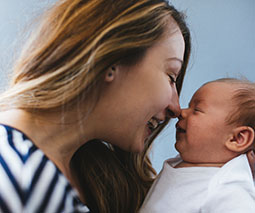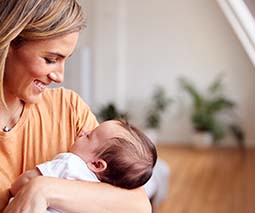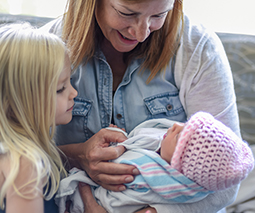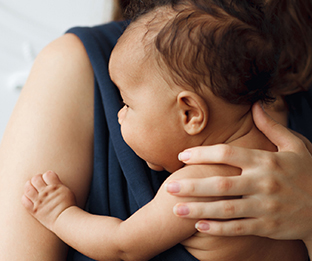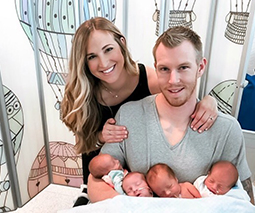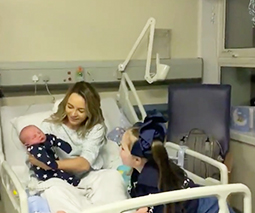Transitioning to parenthood: What all soon-to-be parents really need to know

Motherhood: happiness, rainbows, smiles and love. Right?
We shout from the rooftops when our kid sleeps through or eats solids. But we don’t openly talk about those nights that are spent rocking, patting, shushing, cuddling, trying desperately to get the baby to cooperate. We don’t talk often enough about how tough it is to become a parent, or how drastically our world changes.
This is probably why there’s such a problem in the first place. Australia has programs facilitating the transition to retirement, but there’s not much out there to prepare you for parenthood.
There are too many mums out there who wish they had been more prepared for those first weeks and months. Nastassia is one of them. “People were willing to discuss the pregnancy, but no one talked about what happens when you take your baby home. I remember feeling like I was stealing a baby from the hospital when we left.”
Here are some things you can do to make the transition a little easier.
Manage your expectations
Dr Nicole Highet, Executive Director at the Centre of Perinatal Excellence (COPE) says expectations are often completely slanted by society, and they’re setting new parents up for failure. “The expectation that you’re going to absolutely fall in love with your baby, it’s very much portrayed in the media,” Dr Highet explains. “For a lot of women, that’s not the case. They describe feeling numb.” Feeling numb or indifferent is completely normal. Bonding with babies, like any relationship, can take time.
Talk openly with those around you
Look at your pregnancy as time that you have to prepare yourself for the next stage in your life. Ask yourself and your partner everything you think you need to know. Dr Highet suggests questions such as “what is your expectation around parenthood? What level of involvement do we both want to have? How are we going to manage the juggle? What about time for us in our relationship?”
Use the time to prepare for the birth and the aftermath. My husband and I talked about anything and everything during our pregnancy and it didn’t eliminate those overwhelming days but it made me feel like I wasn’t alone.

Amanda Bernstein from Essential Me, is a doula who has worked with dozens of women, says that new mums rely heavily on their partners during the early months. For her, the biggest thing is understanding. “Listen and show compassion and understanding that things are tough. It’s an adjustment to your lives together.” Figuring out roles can also work wonders. “Some people say, don’t worry about things like the dishes or dirty laundry piling up, but I personally think it makes a big difference to your state of mind, and this is one way partners can be a big help,” she said.
Build your village
Building a village includes everyone who may be able to help you from nannies to cleaners to meals. It’s something Lana Sussman, Counsellor and Co-Founder of The Parents Village is passionate about. “Western culture has an expectation for new mums to just ‘bounce back’ after having a baby and partners tend to return to work quite early on, leaving mums feeling isolated, exhausted and in need of support,” she explains. “But we weren’t made to raise children alone.”

Lana suggests outsourcing wherever you can (embrace online grocery shopping), and to give yourself a break. “Fill your cup by doing something you love. Look after yourself, take a shower, eat, sleep. Self-care is the highest priority. Divide and conquer is your new mantra.”
This is echoed by Dr Highet. “At COPE, we emphasise building your village. Having places to go, having people to connect with; when you’re in those difficult times, you can draw on that village before you get to the point of crisis mode.”
Be realistic
The most important thing you can do, and this was echoed by everyone I spoke to, is to be realistic. Having a baby changes your entire life – from body shape to finances and everything in between.
Yes, those dark days will still happen, and you may find yourself at a crisis point at some stage. It’s just about understanding how to manage it. While some will use humour, others will cry. And this is okay.
“When your baby does poonamis all down their back and all over you, you gotta laugh!” says Lana. “But allow yourself to cry too. It’s an incredible release.”
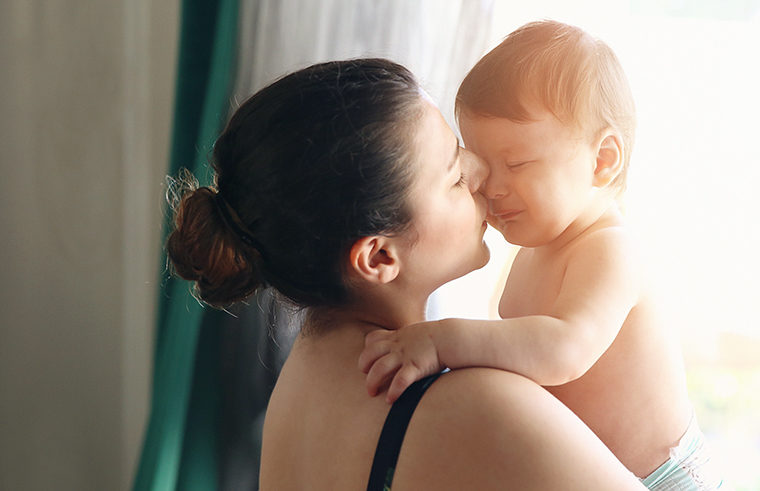
A gentle reminder that everything you see on social media, and everything you’re likely comparing your life to at this very moment, isn’t the whole picture.
For Nastassia, this is key: “Be open, be truthful to yourself and don’t feel ashamed or guilty. All of us are struggling and the more we are all open with each other about the fact that this is a massive guessing game, the easier it will be for all of us.”
Call to action
There are plenty of resources out there to help you manage the transition to motherhood. Ready to COPE is just one of them, offering free fortnightly emails to guide and reassure through the challenges of pregnancy and your first year with bubs. The Parents Village also offers a prenatal program called Birthing The Parent for individuals or couples to help you stay on track.
 Need some support to be the best parent you can be? Our Parent School parent coaching experts can help. Click to find out more or book a one-on-one session.
Need some support to be the best parent you can be? Our Parent School parent coaching experts can help. Click to find out more or book a one-on-one session.
